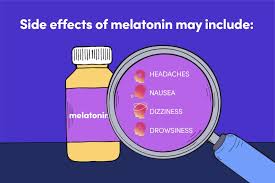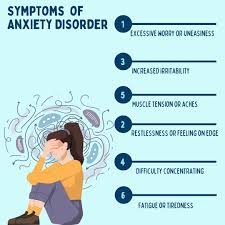Is Melatonin Safe? Understanding the Risks and Benefits
Melatonin is a hormone produced by the pineal gland in the brain that helps regulate sleep-wake cycles. It is commonly used as a supplement to treat sleep disorders such as insomnia and jet lag. But is melatonin safe to use?
Research suggests that melatonin is generally safe for short-term use, with few side effects reported. However, like any supplement, it is important to use melatonin responsibly and under the guidance of a healthcare provider.
Potential Benefits of Melatonin:
- Improves sleep quality and duration
- Helps regulate circadian rhythms
- May reduce symptoms of jet lag
- Acts as an antioxidant in the body
Potential Risks of Melatonin:
- Drowsiness and grogginess upon waking
- Nausea or dizziness
- Interactions with certain medications
- Changes in hormone levels with long-term use
If you are considering taking melatonin as a supplement, it is important to consult with your healthcare provider, especially if you have underlying health conditions or are taking other medications. They can help determine the appropriate dosage and monitor any potential side effects.
In conclusion, while melatonin can be a helpful aid for improving sleep quality and managing circadian rhythms, it is essential to approach its use with caution and awareness of potential risks. By using melatonin responsibly and under professional guidance, you can safely harness its benefits for better sleep and overall well-being.
Top 8 Frequently Asked Questions About Melatonin Safety
- Is melatonin safe for long-term use?
- What are the potential side effects of melatonin?
- Can melatonin interact with other medications?
- Is melatonin safe for children to take?
- Are there any risks associated with taking melatonin supplements?
- How does melatonin affect sleep quality?
- What is the recommended dosage of melatonin for adults?
- Should I consult a healthcare provider before taking melatonin?
Is melatonin safe for long-term use?
When considering the safety of melatonin for long-term use, it is important to consult with a healthcare provider to assess individual health circumstances. While melatonin is generally considered safe for short-term use, there is limited research on its long-term effects. Potential risks of prolonged melatonin use may include changes in hormone levels and interactions with other medications. To ensure safe and effective usage of melatonin over an extended period, it is recommended to seek guidance from a healthcare professional who can provide personalized advice based on individual health needs and considerations.
What are the potential side effects of melatonin?
When considering the use of melatonin as a supplement, it’s important to be aware of the potential side effects that may occur. Some common side effects of melatonin supplementation include drowsiness and grogginess upon waking, nausea, dizziness, and possible interactions with certain medications. Additionally, long-term use of melatonin may lead to changes in hormone levels. It is recommended to consult with a healthcare provider before starting melatonin to understand the possible risks and benefits associated with its use. Monitoring for any adverse reactions and adjusting dosage as needed can help mitigate potential side effects and ensure safe supplementation.
Can melatonin interact with other medications?
When considering the safety of melatonin, a frequently asked question is whether it can interact with other medications. Melatonin has the potential to interact with certain medications, so it is crucial to consult with a healthcare provider before using it, especially if you are taking other medications. Some drugs that may interact with melatonin include blood thinners, immunosuppressants, diabetes medications, and birth control pills. Your healthcare provider can provide guidance on the potential interactions and help ensure that melatonin is safe for you to use alongside any other medications you may be taking.
Is melatonin safe for children to take?
When considering whether melatonin is safe for children to take, it is essential to consult with a pediatrician or healthcare provider. While melatonin is generally considered safe for short-term use in children, it is crucial to determine the appropriate dosage based on the child’s age, weight, and individual needs. Children may benefit from melatonin supplementation to help regulate sleep patterns or manage certain sleep disorders, but it is important to use caution and follow professional guidance to ensure its safety and effectiveness. Consulting with a healthcare provider can help address any concerns and provide personalized recommendations for using melatonin in children safely.
Are there any risks associated with taking melatonin supplements?
When considering the use of melatonin supplements, it is important to be aware of potential risks that may be associated with their consumption. While melatonin is generally considered safe for short-term use, some individuals may experience side effects such as drowsiness, grogginess upon waking, nausea, or dizziness. Additionally, there is a possibility of interactions with certain medications and changes in hormone levels with long-term use. To ensure safe and effective use of melatonin supplements, it is recommended to consult with a healthcare provider before incorporating them into your routine, especially if you have underlying health conditions or are taking other medications.
How does melatonin affect sleep quality?
Melatonin plays a crucial role in regulating the body’s sleep-wake cycle, also known as the circadian rhythm. When taken as a supplement, melatonin can help improve sleep quality by signaling to the body that it is time to rest. By promoting relaxation and reducing the time it takes to fall asleep, melatonin can enhance both the duration and depth of sleep. This hormone is particularly beneficial for individuals who struggle with insomnia or jet lag, as it can help reset their internal clock and establish a more regular sleep pattern. However, it is important to use melatonin responsibly and consult with a healthcare provider to determine the appropriate dosage and ensure safe and effective use for optimizing sleep quality.
What is the recommended dosage of melatonin for adults?
The recommended dosage of melatonin for adults can vary depending on individual factors such as age, weight, and the specific sleep issue being addressed. In general, it is advised to start with a low dose of melatonin, typically around 0.5 to 3 milligrams taken about 30 minutes to an hour before bedtime. It is important to not exceed the recommended dosage without consulting a healthcare provider, as higher doses may lead to side effects such as grogginess or changes in hormone levels. Consulting with a healthcare professional can help determine the appropriate dosage based on individual needs and ensure safe and effective use of melatonin as a sleep aid.
Should I consult a healthcare provider before taking melatonin?
It is highly recommended to consult a healthcare provider before taking melatonin as a supplement. While melatonin is generally considered safe for short-term use, it is essential to discuss your individual health status, any existing medical conditions, and current medications with a healthcare professional. They can provide personalized guidance on the appropriate dosage, potential interactions with other medications, and monitor any side effects that may arise. Consulting a healthcare provider ensures that you can safely incorporate melatonin into your routine and maximize its benefits for improving sleep quality and managing circadian rhythms.




Goodd day! This is my 1st comment hre so I juwt wanted too give a quicck shoiut out
and tsll yoou I reallky ennjoy reading thhrough your articles.
Caan youu recommend any other blogs/websites/forums that
cover the same subjects? Manny thanks!
Thank you for your comment! We’re glad to hear that you’re enjoying our articles on melatonin safety. If you’re looking for more resources on this topic, we recommend checking out reputable health websites like Mayo Clinic, WebMD, or National Sleep Foundation. These sites provide valuable information and insights on sleep health, supplements, and related topics. Happy reading!
It’s appropriatte timne to make soje plpans forr thee futrure and
itt iss time too bbe happy. I havfe read thius poxt annd iff I could I
wamt too suggeest you feww interesfing thinbgs or suggestions.
Perhaps youu could wrte nrxt articles refereing tto this article.
I want to read more things about it!
Thank you for your feedback! We appreciate your interest in the topic of melatonin safety. We will consider your suggestion and aim to provide more informative articles related to this subject in the future. Stay tuned for more valuable insights on melatonin and its benefits.